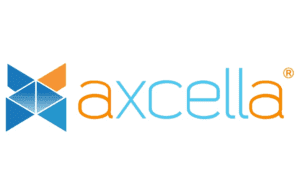 The biotech Axcella Therapeutics (Nasdaq:AXLA) has announced positive topline results from a Phase 2a randomized, double-blind, placebo-controlled study of the metabolism-modulator AXA1125 in patients with fatigue from long COVID.
The biotech Axcella Therapeutics (Nasdaq:AXLA) has announced positive topline results from a Phase 2a randomized, double-blind, placebo-controlled study of the metabolism-modulator AXA1125 in patients with fatigue from long COVID.
The Phase 2a study was among the first drug studies to focus on long COVID.
In February, FDA granted a Fast Track Designation to AXA1125 to treat non-alcoholic steatohepatitis (NASH) with liver fibrosis.
Because of AXA1125’s potential to improve mitochondrial function, bioenergetics and inflammation, Axcella decided to study its ability to improve fatigue symptoms from long COVID. Fatigue is among the most common symptoms associated with long COVID.
Long COVID appears to be similar to post-viral fatigue syndrome and myalgic encephalitis.
Partnering with the University of Oxford, Axcella identified multiple endpoints to consider in studying AXA1125 in long COVID patients. Endpoints included phosphocreatine recovery time (PCrτ) after moderate exercise to assess mitochondrial function, self-reported mental and physical fatigue assessed with the Chalder Fatigue Questionnaire (CFQ-11), 6-minute walk test (6MWT) and serum lactate levels.
The 41 participants were randomized to receive either 67.8 grams per day of AXA1125 (N=21) or a matched placebo (N=20) for 28 days.
Participants who received AXA1125 showed improvements in mental and physical fatigue that were clinically relevant compared to placebo recipients.
“AXA1125 resulted in highly statistically significant and clinically relevant improvements in fatigue — both mental and physical fatigue,” said Dr. Margaret Koziel, chief medical officer at Axcella Therapeutics, in a company webinar. Such improvements were not seen in the placebo arm. In addition, individuals who received AXA1125 could walk farther in the standardized six-minute walk test.
Clinical trial investigators determined that PCrτ was not a useful clinical trial endpoint in the study. The PCrτ data, however, did serve as “an objective measure that there is underlying mitochondrial dysfunction in those subjects with long COVID fatigue,” Koziel said.
Mean changes in total, physical and mental scores in the CFQ-11 compared to placebo were –4.30, –2.94 and -1.32 (p=0.0097), respectively.
Study subjects reported no significant adverse events. The adverse events in the AXA1125 arm were mainly mild.
Between 20% and 30% of COVID patients report long COVID, according to an assessment from IQVIA.